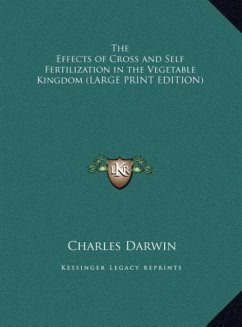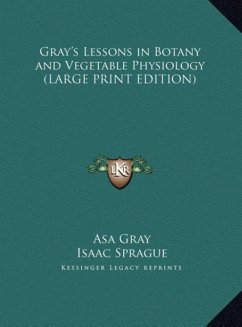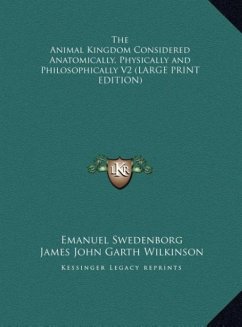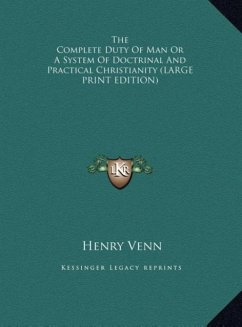
The Effects of Cross and Self Fertilization in the Vegetable Kingdom (LARGE PRINT EDITION)
Versandkostenfrei!
Versandfertig in 1-2 Wochen
52,99 €
inkl. MwSt.

PAYBACK Punkte
26 °P sammeln!
(LARGE PRINT EDITION) 1878. A volume by Darwin the British naturalist who became famous for his theories of evolution and natural selection. After the publication of Origin of the Species, Darwin continued to write and publish books on Biology. Darwin writes in his autobiography about The Effects of Cross and Self Fertilization in the Vegetable Kingdom that: the results there arrived at explain, as I believe, the endless and wonderful contrivances for the transportal of pollen from one plant to another of the same species. I now believe, however, chiefly from the observations of Hermann Muller...
(LARGE PRINT EDITION) 1878. A volume by Darwin the British naturalist who became famous for his theories of evolution and natural selection. After the publication of Origin of the Species, Darwin continued to write and publish books on Biology. Darwin writes in his autobiography about The Effects of Cross and Self Fertilization in the Vegetable Kingdom that: the results there arrived at explain, as I believe, the endless and wonderful contrivances for the transportal of pollen from one plant to another of the same species. I now believe, however, chiefly from the observations of Hermann Muller, that I ought to have insisted more strongly than I did on the many adaptations for self-fertilization; though I was well aware of many such adaptations. See other titles by this author available from Kessinger Publishing.












